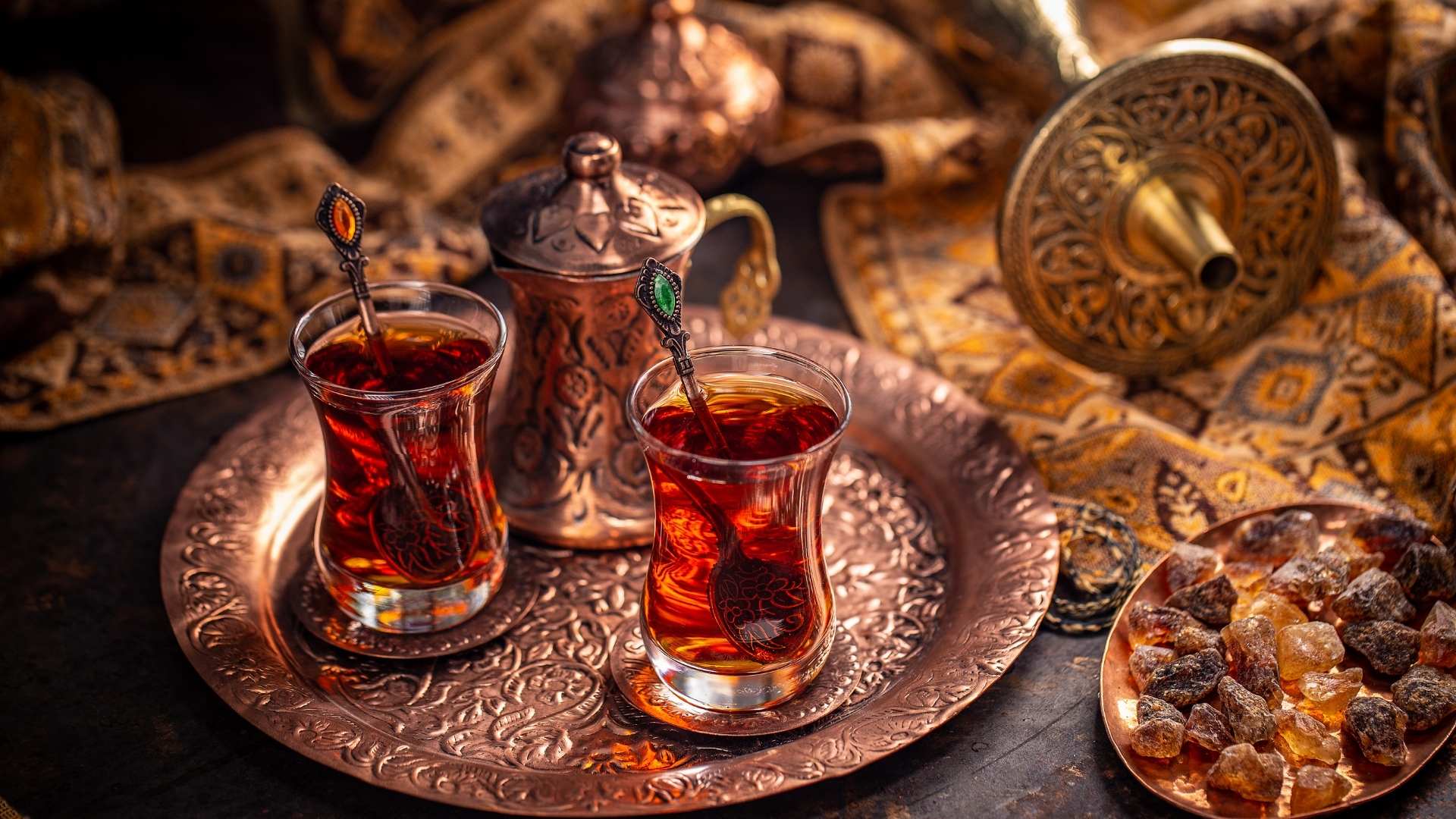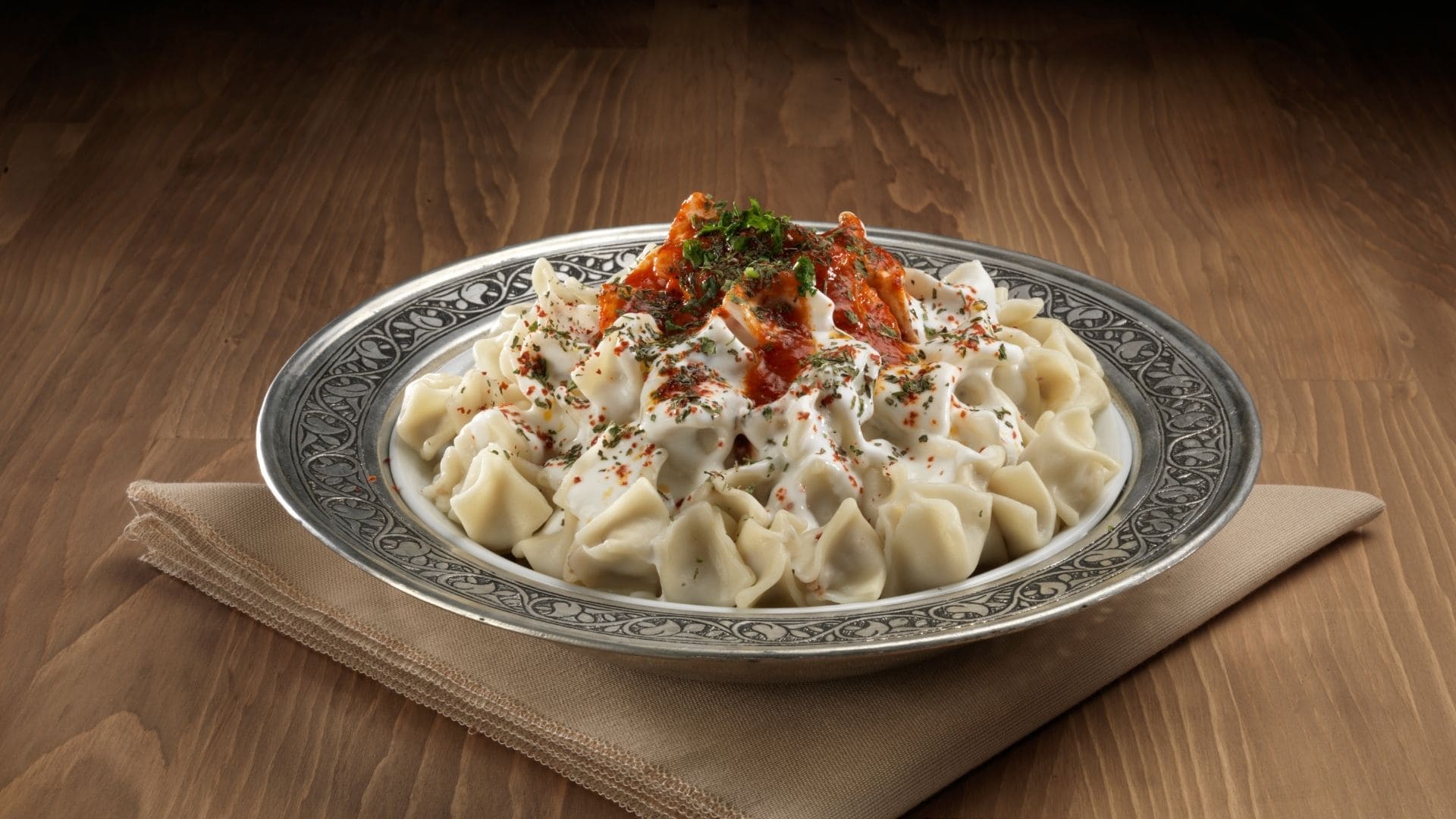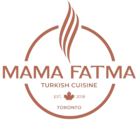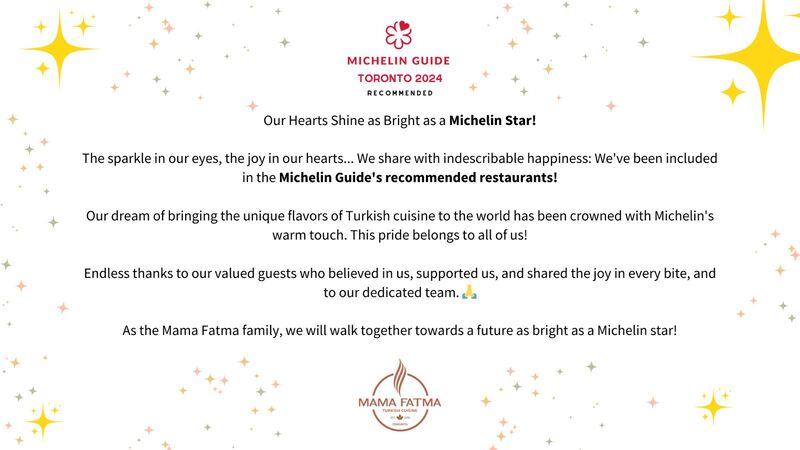Turkish hospitality is renowned worldwide for its warmth, generosity, and attention to detail. The traditions and customs associated with hosting guests in Turkey are deeply rooted in the culture, reflecting the importance placed on relationships and community.
Welcoming Your Guests with Tea and Coffee
One of the most distinctive aspects of Turkish hospitality is the custom of welcoming guests with tea and coffee. Offering tea or Turkish coffee upon arrival is not just a gesture of politeness but a symbol of friendship and respect.
Turkish Tea
Turkish tea, known as “çay,” is a staple in Turkish homes and is typically served in small, tulip-shaped glasses. The tea is brewed strong and served with sugar cubes, but never with milk. The preparation and serving of tea are seen as an art form, and it’s common to see tea being offered at any time of the day.
At Mama Fatma Restaurant in Toronto, Ontario, Canada, guests are greeted with a steaming glass of Turkish tea, providing a warm and authentic start to their dining experience.

Turkish Coffee
Turkish coffee, with its rich aroma and strong flavor, is another essential part of Turkish hospitality. It is traditionally served in small cups, accompanied by a glass of water and often a sweet treat like Turkish delight. The preparation involves brewing finely ground coffee beans with water and sugar in a special pot called a “cezve.”
A visit to Mama Fatma Restaurant wouldn’t be complete without enjoying a cup of Turkish coffee, meticulously prepared to reflect the traditional methods and served with a piece of Turkish delight.
Sweet Snacks and Snacks Served to Guests
In Turkish culture, offering a variety of sweet snacks and light treats to guests is customary. These offerings not only showcase the host’s culinary skills but also create a welcoming atmosphere.
Baklava and Turkish Delight
Baklava, a rich, sweet pastry made of layers of filo filled with chopped nuts and sweetened with syrup or honey, is a favorite treat. Turkish delight, a gelatinous confection flavored with rosewater, lemon, or other flavors, is also commonly served.
At Mama Fatma Restaurant, guests can indulge in homemade baklava and an assortment of Turkish delight, providing a sweet and satisfying complement to their meal.
Savory Snacks
In addition to sweets, savory snacks such as borek (filled pastries) and simit (sesame-encrusted bread rings) are popular. These snacks are often served alongside tea or coffee.
Mama Fatma Restaurant offers a range of savory snacks, including spinach and cheese borek, perfect for sharing with friends and family.

Food Culture in Turkish Hospitality
Food plays a central role in Turkish hospitality. Meals are seen as an opportunity to bond and celebrate with guests, with an emphasis on abundance and variety.
Traditional Dishes
A typical Turkish meal includes a variety of dishes, often starting with a selection of mezes (small appetizers) followed by main courses such as kebabs, pilafs, and stews. Fresh bread, salads, and yogurt are also common accompaniments.
Guests at Mama Fatma Restaurant can enjoy a traditional Turkish meal featuring a range of mezes, succulent lamb kebabs, and fragrant rice pilaf, all served with freshly baked bread and creamy yogurt.
Special Meals
For special occasions, hosts may prepare elaborate dishes such as stuffed grape leaves (dolma), manti (Turkish dumplings), and a variety of grilled meats and vegetables. These meals reflect the host’s dedication to providing a memorable experience for their guests.
During special events at Mama Fatma Restaurant, the menu may include festive dishes like manti and dolma, showcasing the richness and diversity of Turkish cuisine.

Giving Gifts to Guests
Giving and receiving gifts is an integral part of Turkish hospitality. Gifts are often given to show appreciation and strengthen social bonds.
Types of Gifts
Common gifts include sweets, nuts, and dried fruits, as well as handcrafted items like ceramics or textiles. The act of giving a gift is accompanied by expressions of gratitude and well-wishes.
At Mama Fatma Restaurant, special occasions are often marked by the giving of small gifts such as a box of Turkish delight or a beautifully crafted ceramic plate, enhancing the sense of connection and gratitude.
Presentation
The presentation of gifts is also important. Gifts are often beautifully wrapped and presented with great care and ceremony.
Mama Fatma Restaurant prides itself on presenting gifts to guests in an elegant manner, reflecting the high standards of Turkish hospitality.

Hosting Guests on Holidays and Special Occasions in Turkey
Turkish hospitality shines brightest during holidays and special occasions. These times are marked by elaborate preparations, abundant food, and a festive atmosphere.
Religious Holidays
During religious holidays such as Eid al-Fitr and Eid al-Adha, families come together to celebrate with special meals and traditional sweets. It is common to visit friends and relatives, bringing gifts and sharing meals.
Mama Fatma Restaurant celebrates these holidays by offering special menus and traditional dishes, creating a festive and welcoming environment for guests.
National Holidays and Celebrations
National holidays and personal celebrations such as weddings and birthdays are also significant occasions for showcasing Turkish hospitality. These events often involve large gatherings and feasts.
For national holidays, Mama Fatma Restaurant may host special events, complete with traditional music, dance, and a buffet of Turkish delicacies, allowing guests to experience the joy and warmth of Turkish hospitality.



